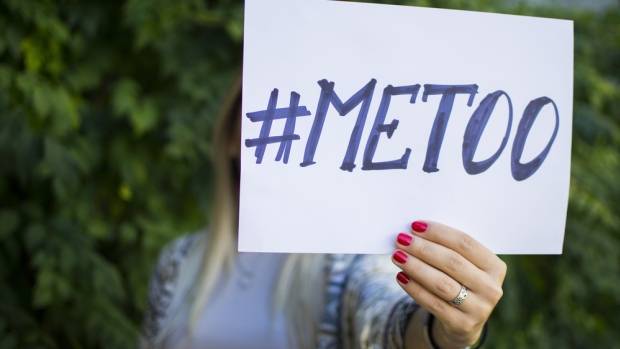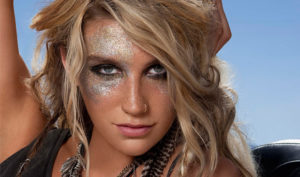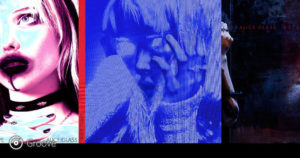Over the last few weeks, many brilliant and brave women have been sharing their experiences of sexism/harassment and abuse across social media. These should act as a wake-up call, not just that sexist language and unwanted lecherous behaviour is never acceptable (it’s never just ‘bants’ either, that’s the excuse of the sexist) but there is a deeper issue. It’s not just during the disgusting Harvey Weinstein affair where misogynistic men have used their positions of power to abuse women. From the dozens of women accusing Donald Trump of unwanted advances (even endorsed by his own words) down to our own parliament where the language and conduct of MPs has been called into question over the last few weeks. These kinds of abuses range in severity, but appear to be rife within the music industry too. Without naming names I’ve read about a few incidents that have really upset me recently. Whether that’s the aggressively sexist comments from an audience member to a young singer from Swansea, a male performer sliming onto a female support artist in a series of private messages who then feels compelled to leave a big tour or the poor treatment of women in recording studios.
Prominent artists in the music industry have followed actresses and well known celebrities in speaking out.A few years ago, pop star Kesha claimed her producer Dr. Luke abused and degraded her from the age of 18, when she signed her record contract although there is still a legal dispute surrounding the case, she claims it led to an eating disorder. Last week Alice Glass formerly of Crystal Castles opened up years of alleged rape and abuse at the hands of her bandmate Ethan Kath while she was still underage. In a blog post she claims “he went to great lengths to find me again, stalking me and driving past my high school looking for me.”
In her blog, she continued: “[Ethan] was very manipulative towards me. He figured out my insecurities and exploited them: he used the things he learned about me against me. Over a period of many months, he gave me drugs and alcohol and had sex with me in an abandoned room at an apartment he managed. It wasn’t always consensual and he remained sober whenever we were together.”
“He became physically abusive. He held me over a staircase and threatened to throw me down it. He picked me up over his shoulders and threw me onto concrete. He took pictures of my bruises and posted them online. I tried to leave, and he swore that it would never happen again, that he would never physically abuse me again. More severe psychological and emotional abuse took its place.”
Following the revelations about Weinstein and in support of the campaign, Bjork claimed to have been sexually harassed by a director at the start of the 2000s, she says she “became aware that it is a universal thing that a director can touch and harass his actresses at will and the institution of film allows it”. In 2000, the musician starred in Lars Von Trier’s Dancer in the Dark.
Masculinity is a crisis in many ways; suicide rates are on the increase which highlights unhappiness; we live in a patriarchal society where inequality is ingrained, and there are more men in boardrooms and more male MPs in parliament. Years of being socialised into thinking that behaving in a certain misogynistic way is ‘OK’, or worse still, to be desired if you are a man; that ego and dominance ‘are part of maleness’ and figures like Donald Trump reinforce this. Also a culture of objectification and internet porn has helped give some young men a very warped view of how to behave and what it is to be a man.
in a recent Guardian article, Jordan Stephens of Rizzle Kicks has written passionately about how our society has helped fostered these notions and how unhelpful they are in understanding that men are often insecure too: “I believe that the false power gifted to me as a man in our society didn’t allow me the space to understand, cry, and work through the pain of my past and duality of my present. This idea that male vulnerability is undesirable – it covers up the pain of so many troubled boys who wanted more hugs from their mum or have missed the company of their dad, or were victims of abuse or loneliness or just generally felt as though they had no time, space, company or even the words to describe how they felt. He continues that maybe self examination is the answer: “It’s our responsibility as we become adults to acknowledge this pain and gain compassion for ourselves and acceptance of others. But for men in particular, when the patriarchy says that it’s OK to grab a woman’s ass, or tell her what to do, or watch too much porn, or to deny her space – and you accept this as a way of treating another human being – you deny yourself the opportunity to understand why you desired that comfort of power in the first place. The ego wants dominance and control. And the male ego is currently everywhere.”
Yes, who hasn’t made mistakes in younger life? Made ill judged comments we may later regret online and in public? And yes, if people seek to change their behaviour, then we should help them. Yet some have shockingly claimed that they were unaware that their behaviour was wrong, but it falls upon us as men to take responsibility; to think if we have ever made a women feel uncomfortable. There’s a line between flirtation and harassment and encroachment on personal space, and no means no. We need to teach each other how to respect women. We also need to be honest with our friends, and to not tolerate comments.
Don’t turn a blind eye to such shocking behaviour. It’s no good saying “that doesn’t apply to me”, “well I wouldn’t dream of treating women in this way” (and I wouldn’t), “not all men are the same”, and “I’m a nice guy.” Listen to just how prevalent this behaviour is, we need to speak up when we see it, we need to know how it makes the women in our life feel, our partners, our sisters, our mothers. We need to learn to be better. Being a man isn’t about acting in this way; you can be a gentleman have a sense of humour with your friends, and not be sexist; to know where the line is. It is possible. We need to challenge the inbuilt sexism that clearly still exists in every day life, politics and specifically the arts. Sexism can work both ways, but as a male, I don’t really know what it’s like to put up with this kind of harassment or abuse in the same way, so I won’t pretend I do. We will have more contributions from our female contributors in the future upon this subject I’m sure but this is from my perspective.
Personally, I’ve never felt superior to any woman in my life, indeed the women in my life have been the strongest, most positive and consistent influences in it. It makes me feel ashamed to be a man when some men behave in this way. There needs to be zero tolerance to it! Let #metoo be that wake-up call to all of us.






